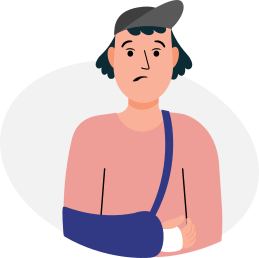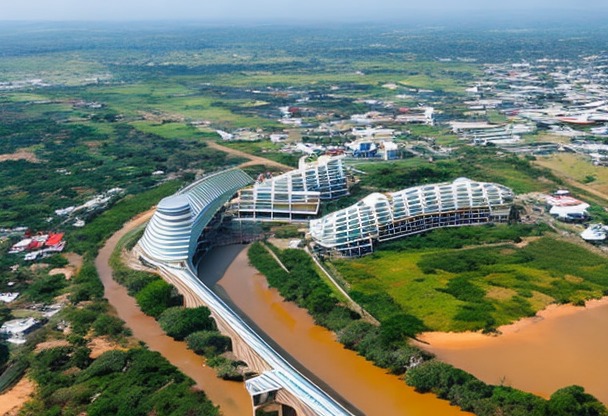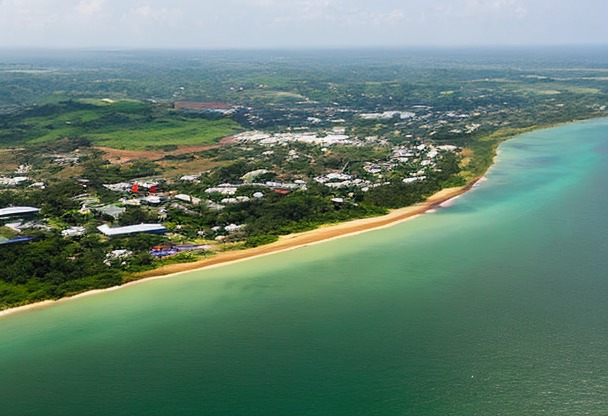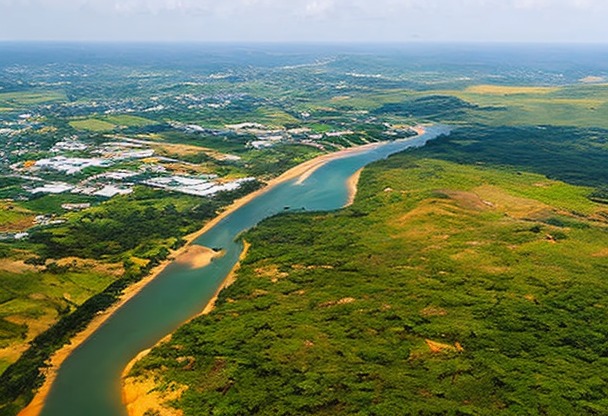WHEN TO TRAVEL TO Ghana
Choosing the right time for your trip to Ghana can make all the difference. It's important to consider climatic elements, seasonal events and busy tourist periods to maximize your travel experience.

Location
Climate
Seasons in Ghana
THE climate in Ghana is equatorial, with average temperatures between 24°C and 32°C throughout the year. However, the country has two main seasons: the rainy season and the dry season.The rainy season
There rainy season generally runs from April to June and from September to November. During this period, rainfall is frequent and can be heavy, particularly in the south of the country. Roads may be difficult to access and some tourist activities may be compromised. However, this season also offers many advantages: nature is lush, waterfalls are spectacular and accommodation rates are often lower.The dry season
There dry seasonThe summer season runs from December to March and from July to August. Temperatures are generally higher and rainfall less frequent, making it the ideal time to enjoy the beaches and visit the national parks. Nevertheless, it is advisable to protect yourself from the sun and heat, especially on long excursions.Major cultural events in Ghana
Ghana has a rich culture, marked by a multitude of festivals and events throughout the year. Here are just a few of the highlights:- Panafest: this pan-African arts and culture festival takes place every two years in July, and celebrates African unity. It brings together artists from different African countries for performances of dance, music, theater and crafts.
- Twins Festival: Held every August, this festive event brings together thousands of twins and their families to celebrate their birth and promote mutual support.
- Chale Wote Street Art Festival: held in September, this urban art festival transforms the streets of Accra into a veritable open-air museum, with works by local and international artists.
- Hogbetsotso: Celebrated in November, this traditional festival of the Ewe people commemorates their migration from Togo to Ghana. Festivities include colorful processions, singing and dancing.
Public holidays in Ghana
Ghana celebrates several public holidays throughout the year, during which tourist activities may be curtailed. Here are some dates to consider when planning your trip:- January 1st : New Year's Day
- March 6 : Independence Day
- May 1st : Labour Day
- December 25 : Christmas
- December 26 : Boxing Day
Low and high tourist season periods
There low season in Ghana generally corresponds to the rainy season, from April to June and September to November. During this period, the number of tourists is lower, which means you can take advantage of lower accommodation rates and a more authentic experience. Visit high seasonThe summer season, on the other hand, coincides with the dry season, from December to March and July to August. Accommodation prices can be higher and tourist sites more crowded, so book in advance to guarantee your stay.Insurance

Your credit card does not cover you in all situations, that is whyIt is essential to take out insurance before you leave to avoid any unpleasant surprises. If you need to see a doctor or be hospitalized, in some countries, medical costs are very high and you will then find yourself having to pay several thousand euros.
Our partner Chapka Insurance proposes the contract CAP ASSISTANCE 24/24 with many essential guarantees.


Flights

Your flight has been cancelled or delayed ?
You may be eligible for a compensation of up to €600 ! For this, lawyers are responsible for handling your claim with the airline and are only paid when the reimbursement is effective.
In conclusion, no financial risk for you, only advantages!
Immigration statistics for Ghana
Every year, Ghana welcomes thousands of immigrants from various countries. Official data show a steady growth in the number of foreigners living in Ghana in recent years. According to World Bank dataGhana's immigrant population was estimated at around 507,000 in 2019, representing around 1.7% of the total population. Migrants are attracted to Ghana for a variety of reasons, including political stability, a growing economy and business opportunities. The majority of immigrants to Ghana come from neighboring countries such as Nigeriathe Ivory Coast and the Burkina Faso. However, there is also a significant presence of immigrants from other parts of the world, such as Asia, Europe and North America.Average age and composition of the immigrant population
The average age of immigrants to Ghana is around 34, with a slight predominance of men over women. Immigrants to Ghana are generally young, dynamic and looking for opportunities to improve their quality of life and that of their families.Crime and immigration
Despite the increase in the number of immigrants, the crime rate in Ghana remains relatively low. The Ghanaian authorities have put in place various measures to ensure the safety and well-being of citizens and foreigners living in the country, including stepping up police patrols and investing in crime prevention programs.Most popular visas in Ghana
The Ghanaian government offers several types of visa for people wishing to visit or settle in the country. Here are the most popular visas in Ghana:- Tourist visa This visa allows visitors to stay in Ghana for up to 60 days. This visa is generally issued for vacations, business trips and family visits.
- Business Visa For foreign entrepreneurs and investors wishing to set up or expand a business in Ghana. The duration of this visa varies according to the type of business and investment.
- Work visa This visa is intended for qualified professionals who have received a job offer in Ghana. The duration of the visa depends on the employment contract and the needs of the employer.
- Student visa The visa is granted to foreign students wishing to pursue their studies at a Ghanaian educational institution. The duration of the visa generally corresponds to the length of the study program.
- Resident visa This visa allows foreigners to settle in Ghana on a permanent basis. To obtain this visa, applicants must meet certain requirements, such as stable employment, housing and sufficient income.
International tourism figures for Ghana
Ghana is an increasingly popular tourist destination in West Africa, attracting thousands of international visitors every year. According to data from the World Tourism Organization, Ghana welcomed around 1.13 million international tourists in 2018, generating an estimated US$2.19 billion in revenue.Tourist attractions and agencies
Ghana offers a diversity of tourist sites and activities for visitors, such as :- The historic town of Cape Coast and its famous castle
- Kakum National Park, with its canopy suspension bridge
- The picturesque beaches of the Atlantic coast
- The rich and vibrant culture of the Ghanaian people
Impact of tourism on the Ghanaian economy
Tourism is an important economic sector in Ghana, contributing to GDP growth, job creation and infrastructure development. The Ghanaian government has put in place various policies and initiatives to promote tourism, including facilitating access to tourist visas and investing in the preservation of the country's cultural and natural heritage.

